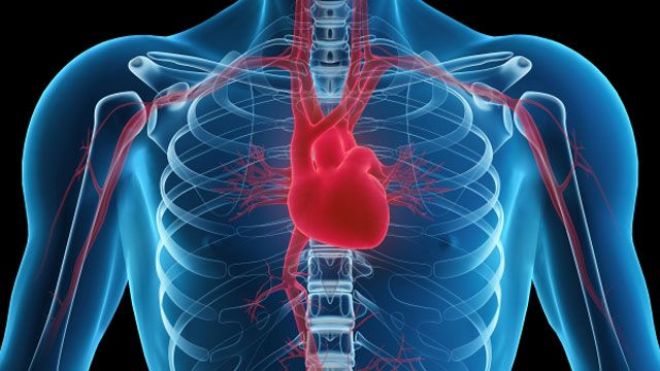Antidepressants may help with heart disease
For some patients with heart disease, taking antidepressants may reduce the risk of heart problems brought on by mental stress, a new study suggests. Researchers looked at patients with myocardial ischemia a condition in which the heart doesn't get enough blood as they preformed mentally stressful activities. All of the patients also had coronary heart disease, or a narrowing of the arteries that supply blood to the heart. Patients in the study who took the antidepressant escitalopram (sold as Lexapro) were about 2.5 times less likely than those who took a placebo to experience myocardial ischemia triggered by mental stress. The findings suggest that an antidepressant, or other treatments that help patients cope with stress, could improve symptoms for some people with coronary heart disease, said study researcher Dr. Wei Jiang, an associate professor of psychiatry and behavioral sciences at Duke University School of Medicine. However, future studies are needed to confirm the results, and to identify the people most likely to benefit from such treatment, Jiang said. Stress and the heart About 30 years ago, doctors observed that mental stress could bring on myocardial ischemia.tudies also have found that people with mental-stress-induced myocardial ischemia are at increased risk of dying from heart disease. Coronary heart disease is the leading cause of death in the United States and about 50 percent of patients with the condition experience mental-stress-induced myocardial ischemia yet few studies have attempted to find treatments. In the new study, 127 patients were randomly assigned to receive escitalopram or placebo for six weeks. Participants completed a number of tests at the beginning and end of the study, including a treadmill stress test, a math test and a test in which participants told a sad story in order to evoke emotion. During the tests, the researchers examined certain heart symptoms to diagnose myocardial ischemia, such as a reduction in blood pumped out of one of the heart's cambers. After six weeks, about 34 percent of participants taking the antidepressant did not experience myocardial ischemia during the mental-stress tests, compared with 17 percent in the placebo group. The antidepressant did not affect whether patients experienced myocardial ischemia during exercise. Dr. Andrew Freeman, a cardiologist at the National Jewish Health hospital in Denver, said it was not very surprising that drugs that blunt the brain's response to stress would also blunt the heart's response to stress. But what the findings mean for patients in the long term is not known, said Freeman, who was not involved in the study. Future studies are needed to see whether antidepressants might reduce the risk of cardiovascular events like heart attacks, Freeman said. How does it work?
